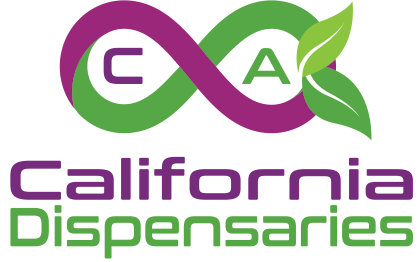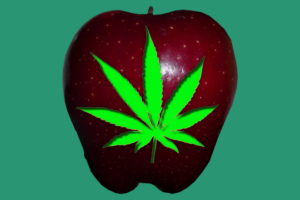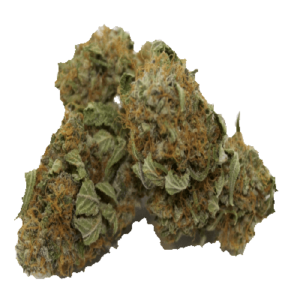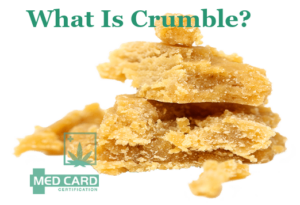CA Marijuana Dispensary Guide
California Regulated Cannabis Program Overview
Type of program: Medical and Recreational
The state of California was a pioneer in the medical marijuana industry when it introduced the Compassionate Use Act of 1996. Patients with qualifying conditions were allowed to obtain a recommendation from a certified physician, giving them access to medical marijuana licensed retailers.
The California Department of Public Health eventually established a state-authorized medical marijuana card, in addition to a state-registry database. This database enables verification of qualifying patients and their attending caregivers and offers assistance with application processing.
Some other benefits of having a MMIC in California are:
- Higher Possession Limits, Purchase Limits, & Ability to Grow More Marijuana
- Lower Age Restrictions
- Access to Medical Only Cannabis Dispensaries
- Stronger Legal Protection
- Potentially eligible to purchase medical marijuana in states with reciprocation programs
California has the biggest marijuana market in the U.S. and is projected to make $6 billion in revenue this year.
Recreational
The Adult Use of Marijuana Act (Proposition 64) was voter-approved in the state of California in November of 2016. Since this bill was signed, local governments were prohibited from denying adults the right to use, grow or transport marijuana for personal use.
Existing suppliers and growers are required by law to apply for recreational permits and to comply with regulations. With the inauguration of the Adult Use of Marijuana Act, more than fifty percent of nonprofit dispensaries legally providing medical marijuana closed.
Marijuana dispensaries in California
There are well over 1000 marijuana (medical and recreational) operating in the State of California. This includes both the OG black market dispensaries, and the state licensed dispensaries. Nationwide Dispensaries only includes cannabis stores that operate within the legal cannabis space.
In 2020 legal cannabis sales at statewide dispensaries hit the $4.4 billion mark — that’s up a whopping 54 percent from the previous year.
Dispensaries in California are permitted to sell marijuana to anyone 21 or older. A special license is required in order to offer medical marijuana.
If qualifying patients present a valid MMIC at a registered medical marijuana facility, they are exempted from state sales tax.
Marijuana products available in California
California dispensaries have a vast array of marijuana and cannabis-infused products available, and the menus continue to grow.
Here are some of the products:
- Flower
- Edibles
- Beverages
- Waxes
- Vapes
- Tinctures
- Lotions (ointments, massage oils)
- Oil
- Hashish (concentrated cannabis)
- Concentrates
CA Marijuana Deliveries RX: Available
California allows the home delivery and ordering of all marijuana products, either by phone or online.
Purchase and possession limits
In the state of California, anyone 21 and over may legally possess up to 28.5 grams (1 oz) of recreational marijuana, 8 grams of cannabis concentrate, and up to six live plants.
Senate Bill 420 (2003) allows medical marijuana patients to purchase and possess up to eight ounces of marijuana, 12 immature plants, and six mature plants. This extends to the patient’s caregiver as well.
Age restrictions
Buyers must be 21 or older to have, purchase, or use recreational cannabis.
Persons over the age of 18 are eligible for a medical marijuana license. A patient under the age of 18 may use medicinal cannabis with permission and under the supervision of a legal guardian or parent.

How to get a medical marijuana card in California
Recreational marijuana is now legal in California, however, some individuals may want their consumption of cannabis monitored by a Healthcare Practitioner to ensure safety and efficacy.
To obtain a medical marijuana card in California patients will need a current recommendation from a certified MD or osteopath in the state of California.
Once the patient receives the physician’s recommendation they may proceed to the CDPH Medical Marijuana ID Card Program to complete the application process.
The CDPH Medical Marijuana Identification Card Program website offers information about identification cards, requirements, and a list of frequently asked questions:
Marijuana doctors in California
All doctors in California have the right to prescribe cannabis for medical purposes as long as they have a valid medical or osteopathy license.
The prescribing physician will determine whether or not the patient would benefit from the medicinal use of cannabis and agree to examine, assess, diagnose, treat, and counsel them prior to prescribing marijuana.
Qualifying Conditions Include:
In California qualifying patients may receive a medical marijuana card if they suffer from any of the following medical conditions:
- AIDS
- Anxiety
- Anorexia
- Arthritis
- Cachexia
- Cancer
- Chronic pain
- Fibromyalgia
- Glaucoma
- Insomnia
- Migraine
- Muscle spasms
- Radiation and chemotherapy side effects
- Seizures
- Severe nausea
- Any and all serious, debilitating, chronic medical symptoms
Renew a California medical marijuana card
To renew your California medical marijuana card see the link below and fill out the form.
CDPH 9042 (PDF) – Medical Marijuana Program Application/Renewal
Telemedicine
In California, prospective medical marijuana patients can now be evaluated via MedCard telemedicine — that is meeting with a doctor via video conferencing — in order to be approved for a California medical marijuana card.
Caregivers
In the state of California, according to the law, an individual 18 years of age or older may be designated as a caregiver to assist in the procurement, growing, transportation, and administration (if necessary) of medical marijuana to their patient.
The registration process for the MMP is voluntary and enables members of law enforcement to verify a caregiver’s authenticity.
California Marijuana Laws
Transporting cannabis in California
In the state of California, up to one ounce of marijuana can be transported in a sealed container. Recreational marijuana should be kept in a locked glove compartment or trunk of the vehicle.
If medical marijuana patients are carrying cannabis in public they should have it in the original packaging, proof of purchase, and their medical marijuana card.
Marijuana-related DUI laws in California
Marijuana DUI’s in California are in a legal gray area, as the state doesn’t have a legal blood concentration limit as it does for alcohol.
According to an Assembly Public Safety Committee analysis “there is no per se level at which a person is presumed to be under the influence as a result of marijuana use.”
However, the California DMV website states that “the use of any drug (the law does not distinguish between prescription, over-the-counter, or illegal drugs) which impairs your ability to drive safely is illegal.”
If an individual is pulled over and suspected of driving while under the influence of marijuana, the following may apply:
- License suspension. If charged with DUI, drivers face suspension as soon as they’re arrested and additional suspension if convicted.
- Jail time. Jail time for DUI starts at two days minimum sentence, up to six months. It can be dramatically more or include prison time in some cases.
- Mandatory safety classes. You will be required to attend DUI school at your own expense.
- Thousands of dollars in costs. The lowest you will pay for a first-time DUI is about $1,800. It can easily be over $15,000.
Public consumption laws in California
In the state of California vaping, smoking and otherwise consuming marijuana in public is prohibited, as is opening a package of cannabis or cannabis products in public, including residential areas, business areas, sidewalks, parks, public buildings, places of employment, bars, and any area within 15 feet of ventilation opening.
Consumption of cannabis should be contained to private property. However, owners and landlords have the right to ban use and possession on their properties.
Any infraction of the public-smoking cannabis law could result in a $100 fine.
Social consumption
In marijuana-friendly California more and more cannabis lounges are cropping up throughout the state in the larger cities. The lounges offer a safe place to vape, smoke, and consume edibles.
Home cultivation: allowed
Cultivation of marijuana for personal use is legal in the state of California.
Recreational marijuana: up to six mature plants per adult 21 or older
Medical marijuana: 6 mature plants and 12 immature plants for patients over 18 and caregivers.
Read More: How to grow your own marijuana at home
California medical marijuana and guns
California law does not prohibit the possession of guns solely for being a marijuana user. However, under federal law, marijuana is still categorized as a Schedule 1 controlled substance. Under Federal law, all “unlawful users of marijuana” are prohibited from possessing guns or ammunition. This includes individuals holding a medical marijuana card.
If a marijuana user is charged with a federal crime while carrying a gun, or if during an investigation they are found to be a marijuana user, not only will their right to own a gun be revoked, they may also be subject to substantial legal consequences.
Read More: What CA Gun Owners Need To Know Before Getting a Medical Marijuana Card
Pending Changes to California marijuana laws
Twenty new cannabis laws addressing a broad range of issues were proposed at the 2020 legislative session and will finally be addressed including cannabis taxes, fines and penalties, cannabis employment discrimination, local cannabis ordinances, cannabis testing, cannabis in schools, cannabis for terminally ill patients in health care facilities, and the reporting of state hemp cultivation information to federal authorities.
California hemp and CBD laws
In California, anyone can purchase and consume all CBD products derived from hemp. In order to purchase CBD products derived from marijuana, anyone under 21 must present a medical marijuana card.
California medical marijuana information and contacts
Medical Marijuana Card Application
CDPH’s Medical Marijuana Identification Card Program Website
Frequently Asked Questions (FAQs)
Mailing Address: P.O. Box 997410 – MS 5202, Sacramento, CA 95899-7410
Email: MMPinfo@cdph.ca.gov
Phone: (916) 552-8600












